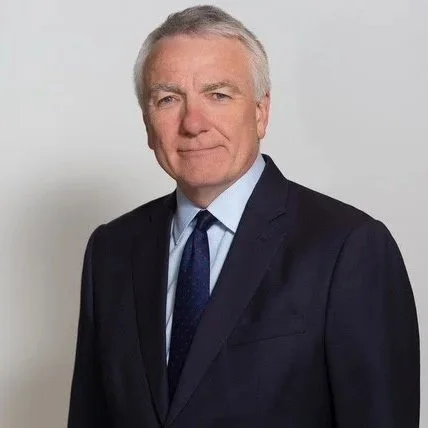H2C Appoints Simon Bird to Advisory Board to Advance Maritime Decarbonisation
Edinburgh, London, Dubai and Singapore – 8th September 2025 — H2C, the global market platform for Green Premium Certificates (GPCs) supporting low-carbon fuels, is pleased to announce the appointment of Simon Bird to its Advisory Board. This strategic addition reinforces H2C’s commitment to accelerating decarbonisation across the maritime sector, one of the most urgent and complex arenas for industrial transition.
Simon brings more than three decades of senior leadership in the UK ports and maritime infrastructure. Most recently, he served as Executive Director at Associated British Ports (ABP), where he oversaw the UK’s largest port cluster by tonnage, including Immingham, Hull, Grimsby and Goole. Prior to ABP, Simon was Chief Executive at the Bristol Port Company and a board member at the Mersey Docks and Harbour Company, now Peel Ports.
His national influence includes roles as Chair of the UK Major Ports Group and as a former UK Government Port Adviser, in both roles working closely with ministers and officials.
Simon currently serves as a Non-Executive Director of KNOP Offshore Partners (NYSE: KNOP) and sits on the board of the Northern Powerhouse Partnership. A former Royal Navy officer, he continues to serve as an Honorary Captain in the Royal Naval Reserve.
“The maritime sector is at a critical inflection point, with schemes like FuelEU and the IMO’s forthcoming lifecycle-based decarbonisation standards demanding urgent and verifiable change,” said Simon Bird. “What drew me to H2C is its unique ability to connect the full value chain – from fuel producers and ports to downstream beneficiaries like consumer brands and retailers. H2C is pioneering a system that not only supports compliance but also accelerates investment into the green fuels we urgently need.”
Maritime transport carries over 90% of the world’s traded goods and is responsible for an estimated 3% to 4% of global greenhouse gas emissions. The sector is uniquely positioned to decarbonise at scale, driven by coordinated regulatory efforts from major trading blocs and the International Maritime Organization (IMO).
“We are honoured to welcome Simon to the H2C Advisory Board,” said Peter Ellen, CEO of H2C. “His operational insight, board-level governance experience and strategic vision will be vital as we scale our certificate markets to support maritime fuel transitions at global scale.”
Simon’s appointment marks a pivotal step in H2C’s broader strategy to decarbonise hard-to-abate sectors by unlocking demand signals and financing for green hydrogen and its derivatives (gH2+). Through Green Premium Certificates, H2C enables verified, unbundled claims of fuel provenance, allowing multiple actors – including transport operators, ports, logistics firms and consumer-facing brands – to fund and account for Scope 1, 2 and 3 emissions reductions.
As global maritime decarbonisation regulations intensify, H2C is providing a critical infrastructure layer that enables ship operators and cargo owners to demonstrate compliance and minimise costs through verifiable fuel switching, while supporting broader climate leadership across the value chain.
About H2C
H2C is an international market enabling the decarbonisation of global supply chains through the use of Green Premium Certificates (GPCs) – unitised certificates that verify the origin and environmental attributes low carbon fuels, including green ammonia, e-fuels and advanced biofuels. Founded with support from global partners, H2C was created to accelerate investment into clean fuels by unbundling environmental claims from fuel molecules. H2C is supported by Lloyd’s Register www.lr.org who provide a range of market services including verification and price discovery.
These fuels, produced using renewable energy, biogenic inputs or captured carbon, offer viable, scalable alternatives to fossil fuels in sectors such as shipping, aviation, heavy industry and logistics. Green hydrogen and its derivatives are zero-carbon at the point of use; e-fuels deliver synthetic hydrocarbons with closed-loop carbon cycles; and biofuels provide renewable, drop-in solutions with certified lifecycle emission reductions.
In today’s market, only a small fraction of green fuel producers have secured offtakers due to the high cost premiums over fossil-based alternatives and the lack of a viable spot market for their fuels. H2C addresses this constraint by allowing multiple downstream actors, from logistics providers and port authorities to industrial users, consumer brands and retailers, to finance green premiums and make verified Scope 1, 2 and 3 emissions claims.
By separating the purchase of GPCs from physical fuel transactions, H2C enables greater market participation, improves liquidity and drives final investment decisions in production. The platform is interoperable with multiple international standards and offers a scalable solution for compliance with emerging regulatory regimes such as FuelEU Maritime and the IMO’s lifecycle-based fuel measures.
Through its book-and-claim registry, H2C maintains custody, traceability and causality of each ton of fuel, ensuring transparency, auditability and alignment with regional carbon accounting rules. The H2C market enables these certificates to be bought and sold so that the full value chain of beneficiaries can contribute to funding the green premium costs of fuels in advance of their production, unlocking early investment and accelerating clean energy deployment. This approach empowers a new class of climate leaders across industries to deliver decarbonisation, activating resilient, multi-tenanted supply chains for the low-carbon fuel economy. For buyers this means lower compliance costs and an opportunity to directly eliminate emissions from supply chains, rather than relying on third-party offsetting credits.
For media enquiries and further information, visit www.h2c.org or email info@h2c.org. Download PDF Version

